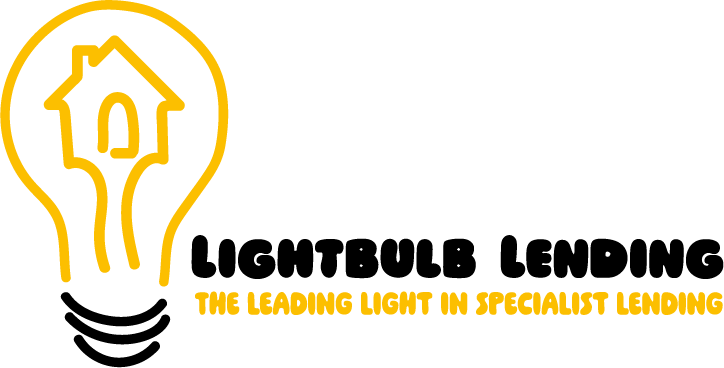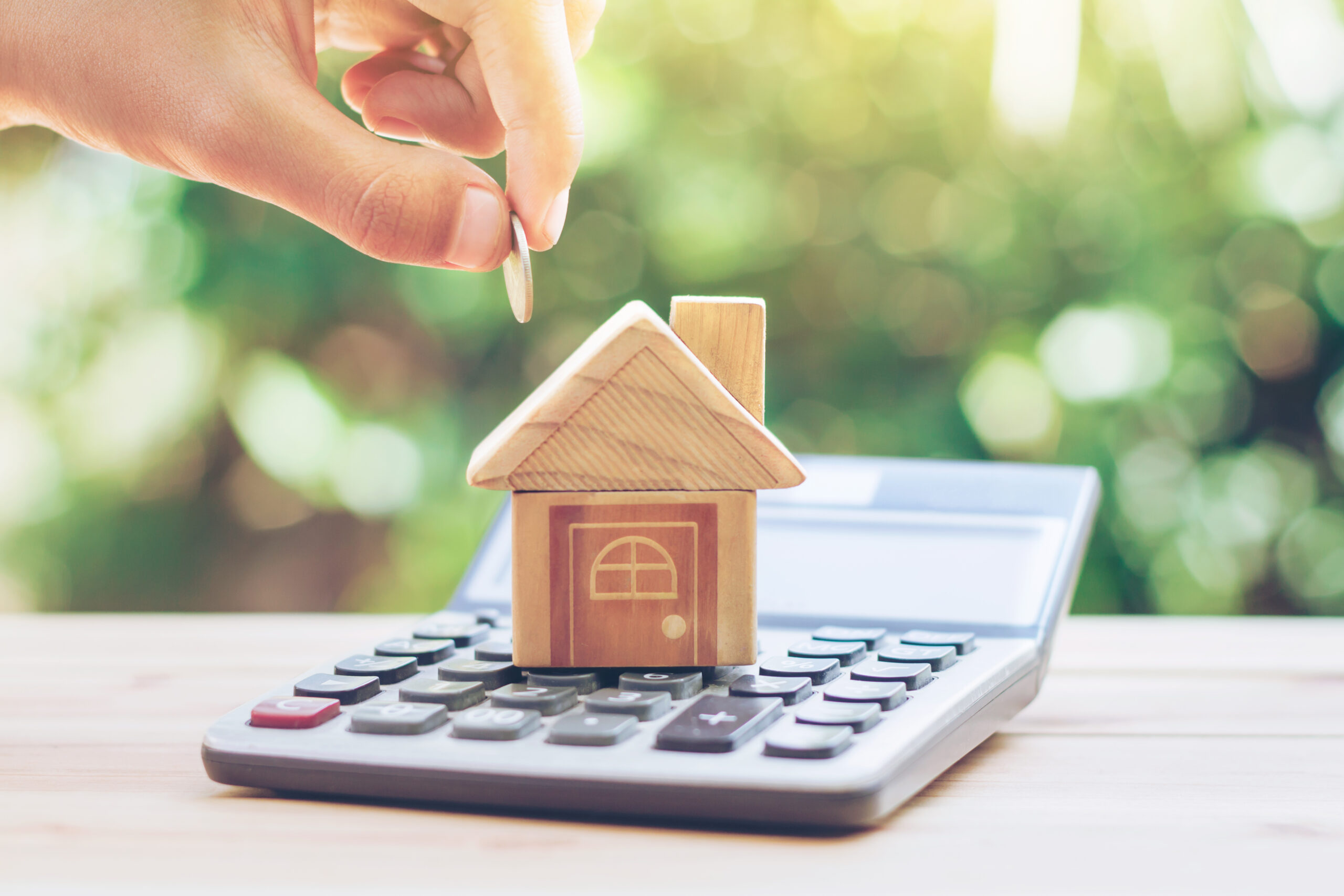Purchasing your forever home is a milestone filled with excitement and challenges – but it’s also a journey that brings lifelong rewards and a sense of fulfilment. If you’re applying for a mortgage, one of the main things that lenders will consider is your affordability. Your affordability will help lenders decide how much you can borrow and the type of home that you can realistically afford to buy. Understanding affordability is essential for securing a mortgage and ensuring that you don’t commit beyond your financial means.
At Lightbulb Lending, we understand the complexities and challenges that you may come across when understanding your affordability, particularly where mortgage applications are concerned. We work with specialist lenders who understand that life events can impact your credit rating – but we’re here to make your dream home possible. In this guide, we’ll explore everything you need to know about affordability when applying for a mortgage. Need more advice? Contact us today!
Understanding Affordability
What is affordability?
Affordability is the amount of money that you can reasonably borrow and repay based on your financial circumstances. When applying for a mortgage, the lender(s) will assess your income, expenses, debts, financial commitments and more to determine how much you can comfortably repay each month. The calculation for affordability also includes a ‘stress test’ which evaluates whether you can still manage the repayments if interest rates were to rise. This test ensures that you won’t struggle financially in the future. Contact us today for more information about affordability.
What can impact your affordability when applying for a mortgage?
Several things can impact your affordability, and indeed the success of your mortgage application. A comprehensive understanding of what impacts your affordability can help you prepare and increase your chances of securing a mortgage. Here are some of the factors that can influence your affordability when applying for a mortgage…
- Income Stability
Lenders will look at your income, including your salary, bonuses, commission and any other income sources, to determine how much you can comfortably afford to repay. If you’d like to improve your affordability, you should ensure consistent and reliable income.
- Existing Debt
Existing debts such as credit cards, loans, car finance and more significant debt such as DMPs and IVAs can reduce the amount you will be approved to borrow. A lender will calculate your debt-to-income ratio to ensure you can meet your financial obligations.
- Credit History
Poor or no credit history can impact your likelihood of being approved for a mortgage. Demonstrating a strong credit score shows that you can meet your financial obligations with no missed payments or defaults.
- Living Costs
Lenders will assess your regular living expenses such as utilities, shopping, childcare, transport and more. These costs will be factored into the calculation to decide how much you’re eligible to borrow.
- Deposit Size
If you have a large deposit, you will need to borrow less which can improve your affordability score. If you have saved a larger deposit, this also shows lenders that you are financially prepared to own a home.
- Age & Employment Status
Lenders may also look at your age and employment status when considering your eligibility. Your age will impact the length of your mortgage term, as will your employment status, such as whether you’re full-time, part-time, self-employed or on a contract.
- Mortgage Interest Rates
Mortgage interest rates will directly impact your monthly repayments and your ability to meet these repayments. Higher interest rates may reduce your borrowing capacity, while lower rates can enhance it.
We recommend considering these factors when applying for a mortgage to ensure that your application is successful. If you believe that your affordability will reduce the likelihood of your mortgage being successful, all is not lost. Mortgages with bad credit and affordability are still possible with Lightbulb Lending. Contact us today to start your journey to homeownership.
Mortgages with Poor Affordability Are Still Possible…
At Lightbulb Lending, we want to make your homeownership dreams possible, even if you have poor affordability. We can help you achieve your ideal home, even if your affordability is impacted by…
A debt management plan is a formal agreement with a singular body or charity, that will arrange with all your creditors to make payments based on what you can afford after prioritising essential expenses such as rent, utilities, and council tax.
An Individual Voluntary Arrangement (IVA) is a legal agreement between you and your creditors to repay your debts at an affordable rate. While an IVA may limit your options, this doesn’t mean that you can’t secure a mortgage.
While bankruptcy can be stressful and challenging, you shouldn’t let it stop you from securing a mortgage. At Lightbulb Lending, we know which lenders are open to considering applications from individuals with a bankruptcy history.
High-street lenders usually rely on credit scores to assess the risk of lending. If you have no credit history available, you may be viewed as a high-risk applicant as no data shows how well you manage financial repayments.
If you fail to meet the repayment terms of a credit agreement, you will incur a default. While a default may limit your options with high-street lenders, this doesn’t mean that you can’t secure or apply for a mortgage.
If you fail to repay a debt, you will be issued a County Court Judgement (CCJ). A CCJ on your credit file can complicate your mortgage application process, but it doesn’t make securing a mortgage impossible.
At Lightbulb Lending, we work with a wide range of lenders, including those who do not rely on credit scoring and are more flexible in their lending criteria. Armed with years of experience, our services are backed by fast turnaround times, 5★ customer service and FREE no-obligation consultations and quotes. If you’re concerned that your credit history or financial obligations may impact your affordability, get in touch with Lightbulb Lending today.
FAQs
Can I get a mortgage with a Debt Management Plan?
Yes, it is possible to get a mortgage with a DMP, especially if you have been making consistent payments for at least 12 months.
Will my DMP affect my credit score?
Yes, a DMP can affect your credit score as creditors may register defaults when you enter into the plan. However, managing your DMP well can improve your financial standing over time.
How much deposit will I need?
The deposit required may vary depending on how long you have been on the DMP and your credit history. Generally, a larger deposit, such as 15%, may be required initially.
Can I apply for a mortgage immediately after starting a DMP?
We recommend waiting at least 12 months after starting a DMP before applying for a mortgage. This allows time to build a positive payment history.
What if I have missed payments on my DMP?
Missed payments can negatively affect your mortgage application. Lenders prefer applicants who have made consistent payments.
What happens if my DMP ends before applying for a mortgage?
If your DMP has ended and you have settled your debts, your application may be more favourably viewed by lenders, especially if some time has passed since the DMP ended.
How long should I wait after settling my DMP to apply for a mortgage?
Some lenders may prefer you to wait 12 months after settling your DMP, while others may be willing to consider your application sooner.
Can I get a mortgage if I’m still in an IVA?
Yes, although it may be more challenging to get a mortgage if you are in an IVA, it is possible. A higher deposit will likely be required and only certain lenders will consider your application.
How long after an IVA do I need to wait before applying for a mortgage?
The longer the IVA has been settled, the better. Typically, after 12 months, the deposit requirement may decrease, and more lenders may be willing to consider your application.
Can I get a mortgage after bankruptcy?
Yes, you can apply for a mortgage after being discharged from bankruptcy for at least 9-12 months. The longer the discharge period, the more favourable the terms may become.
How much deposit will I need if I have a history of bankruptcy?
The deposit required will vary depending on how long it has been since your bankruptcy was discharged. Typically, a larger deposit is required initially, but this may decrease over time.
How can I improve my chances of getting a mortgage after an IVA or bankruptcy?
Improving your financial situation, maintaining a steady income, and saving for a larger deposit can all help. We can provide tailored advice based on your circumstances – contact us today.
Will my interest rate be higher if I have an IVA or bankruptcy?
Your interest rate may be higher due to the perceived risk, but we will work to find the most competitive rates available for your situation.
Can I get a mortgage with no credit history?
Yes, it is entirely possible to get a mortgage with no credit history. We work with lenders who may offer a mortgage to individuals with no credit history.
What deposit will I need if I have no credit?
Typically, a minimum deposit of 10% is required, but a larger deposit may improve your chances of approval.
How long does the mortgage application process take?
The process can take several weeks, depending on the complexity of your application and the lender’s requirements.
Can I get a mortgage if I am not on the electoral roll?
While it may be more challenging, it is still possible. We can help identify lenders who are more flexible with their criteria.
Can I get a mortgage with a default on my credit file?
Yes, it is possible to get a mortgage with a default. You can rely on Lightbulb Lending to identify the lenders most likely to approve your mortgage application, despite these challenges.
Will a CCJ prevent me from getting a mortgage?
No, having a CCJ does not automatically prevent you from getting a mortgage. We can help find a lender who is willing to work with you based on your unique circumstances.
How long do defaults and CCJs stay on my credit file?
Defaults and CCJs remain on your credit file for six years, although a CCJ can be removed if paid within 30 days of the judgement.
Do I need a larger deposit if I have defaults or a CCJ?
Not necessarily, deposit amounts will depend on the severity and age of the default or CCJ. Some lenders may require a larger deposit, but we can help find the best option for you.
Can I get a mortgage if I have multiple defaults or CCJs?
Yes, we have experience in securing mortgages for clients with multiple defaults or CCJs. The key is finding the right lender, so please don’t hesitate to contact us today.
Will my interest rate be higher if I have a default or CCJ?
Interest rates may be higher if you have a default or CCJ, but we focus on finding you the most competitive rates available based on your circumstances.
How soon after a CCJ can I apply for a mortgage?
You can apply for a mortgage at any time, but the older the CCJ, the better your chances. Some lenders may require it to be settled first.
What should I do if my mortgage application is rejected?
The most important thing is not to be discouraged. We will work with you to explore other lenders who may be more suited to your financial situation.
At Lightbulb Lending, we’re here to help you navigate the world of mortgages. Whether you’re a first-time buyer or looking to upgrade, understanding affordability is the first step toward making informed decisions. Contact us today to start your mortgage journey.


